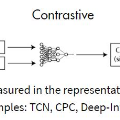Capturing emotions within a conversation plays an essential role in modern dialogue systems. However, the weak correlation between emotions and semantics brings many challenges to emotion recognition in conversation (ERC). Even semantically similar utterances, the emotion may vary drastically depending on contexts or speakers. In this paper, we propose a Supervised Prototypical Contrastive Learning (SPCL) loss for the ERC task. Leveraging the Prototypical Network, the SPCL targets at solving the imbalanced classification problem through contrastive learning and does not require a large batch size. Meanwhile, we design a difficulty measure function based on the distance between classes and introduce curriculum learning to alleviate the impact of extreme samples. We achieve state-of-the-art results on three widely used benchmarks. Further, we conduct analytical experiments to demonstrate the effectiveness of our proposed SPCL and curriculum learning strategy. We release the code at https://github.com/caskcsg/SPCL.
翻译:在现代对话体系中,在对话中获取情感是关键的作用。然而,情感和语义关系薄弱,给对话中的情感识别带来了许多挑战。即使是语义相似的话语,情感也会因背景或演讲者而大相径庭。在本文中,我们提议对对话中的情感定位进行监督性原型差异学习(SPCL)损失,以完成对话中的情感定位。利用原型网络,SPCL的目标是通过对比学习解决不平衡的分类问题,而不需要大量批量。同时,我们根据班级之间的距离设计了一个困难计量功能,并引入课程学习以缓解极端样本的影响。我们在三大广泛使用的基准上取得了最先进的成果。此外,我们进行了分析实验,以展示我们提议的SPCL和课程学习战略的有效性。我们在https://github.com/casksg/SPCLL公布了代码。



